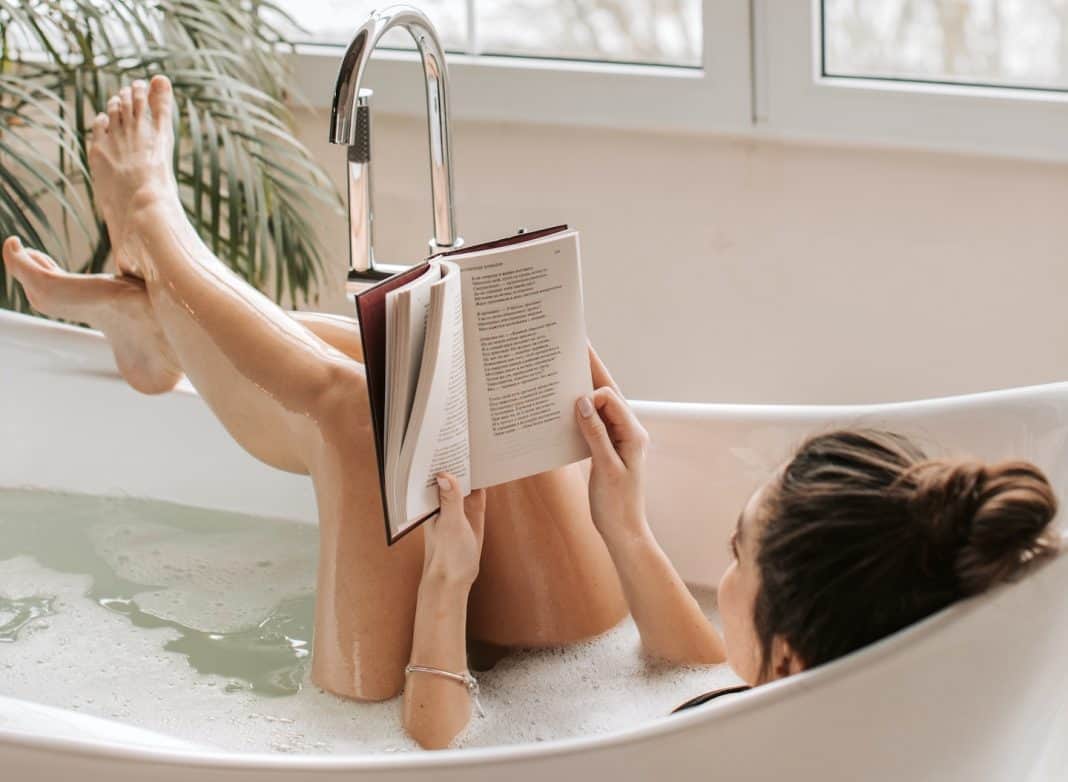If you’re in a relationship, chances are you have a tight schedule. Between work, running errands, family duties, socializing, and spending time with your partner, you’re probably pretty busy. Something that might not even make it onto your calendar? Spending time alone and practicing self-love. This is especially true if you live with your significant other. Whether you’re happy spending time with your partner or you feel like you need space to recharge, alone time is a great way to practice self-love and cultivate a feeling of healthy independence. “When we spend quality and designated time on ourselves, we nurture our own social and emotional well-being, which makes us more likely to carry that out towards other relationships,” says therapist Julia Colangelo, LCSW. “It is vital that to enable our relationship to grow, we must also grow and develop as a person.” Here’s how to take time for self-love and self-care when you’re in a relationship:
How to Ask for Alone Time
Prioritizing alone time might be difficult if you’re used to spending a lot of time with your partner. If you suddenly start spending more time alone, your partner might think they did something wrong—that’s why it’s important to communicate. You might feel guilty asking for time alone, especially if you have multiple commitments. “In our society, we are often taught that if we put our needs first, we are being selfish,” says Kimberly Hershensen, LCSW, a New York–based therapist specializing in relationships. “However self-love and being selfish are two different things. Self-love is choosing to honor your inner wants and needs in order to fulfill your potential.” Let your partner know that you plan on spending time alone to relax and reflect. Tell them why you think it will be beneficial for you and for the relationship. Be clear that needing alone time isn’t an indicator that something is wrong with the relationship. Even in the healthiest relationship, you need some time apart to grow and practice self-love. “I recommend that couples begin by understanding how much ‘you time’ each person benefits from, and how they best use it,” Colangelo says. “For some people, they prefer less than one hour a day of alone time and feelings of rejection may come up if a partner identifies that they need more ‘me time.’” The key, she says, is to communicate with your partner. Instead of framing it as “I need you to leave me alone,” frame it as “I’d like some alone time to read and take a walk,” or, “I want to journal and practice some self-reflection.” This way, you’ll avoid implying that your partner is a problem, focusing instead on your commitment to investing in alone time because you enjoy it and it’s good for you. Encourage your partner to enjoy alone time, too. If they feel stressed or overwhelmed, suggest they take a walk, visit their favorite restaurant for a snack, or meditate for a few minutes. This way, they can see firsthand how beneficial it can be. To ensure you get enough alone time, you might want to schedule it in each week. If you like routine, you could pencil it in for the same time each day or week, depending on how frequently you want to be alone.
You have some time to yourself—now what?
If you’re not used to spending time alone, it can feel awkward. You might be tempted to hop online, hang out with friends, work, or run errands. These can all be useful activities, but it’s also important that we take time to do enjoyable things by ourselves. Do things that allow you to enjoy the pleasure of your own company. You might find it liberating to take yourself on dates: Go watch a movie in theater or have lunch at a restaurant. Of course, this might initially feel weird. After all, these are usually activities you do with others. If venturing out solo is too uncomfortable, it might be more meaningful and restorative to spend your alone time reading, taking a long bath, or walking. These activities are usually done on our own, but we don’t always get a chance to do them when we’re busy with other important tasks. Journaling can be another useful alone-time activity. Hershenson suggests making a gratitude list each day. Your gratitude list can include things like your family or your health, or more specific things like a promotion at work or an upcoming vacation. “Focusing on what is good in your life as opposed to what is going wrong helps relieve stress,” she says. Journaling can also help you practice acceptance. “Make a list of what you can control … like getting enough sleep or eating well, and what you can’t control, like your kid having a temper tantrum,” Hershenson suggests. “Focus on what you can control to make change, and accept what you cannot control.”
Flying Solo
When we’re in relationships, we might stop doing the things we enjoy if our partner doesn’t find them enjoyable. Alone time provides you with an opportunity to pursue those interests. For example, you may enjoy hitting the gym but your partner doesn’t. In this case, investing in a gym membership and making use of it can be a great activity for alone time. You might love museums even though your partner finds them boring. Why not take yourself to a museum every so often? Consider taking up hobbies or learning skills on your own. Take an art class, practice meditation, or go to cooking lessons. If your budget is limited, look for free courses online. This way you’re growing as a person and you’re doing things that bring you joy. When you’re engaging in activities that interest you, you give yourself time to grow, reflect, and assert your independence. Frequent alone time is essential in maintaining a healthy relationship and practicing self-love.



